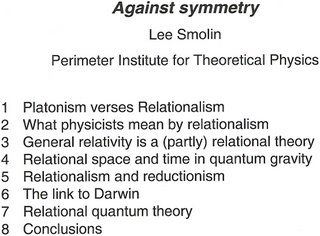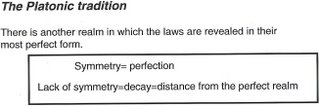An Oligarchy (Greek Ὀλιγαρχία, Oligarkhía) is a form of government in which power effectively rests with a small elite segment of society distinguished by royal, wealth, intellectual, family, military or religious hegemony. The word oligarchy is from the Greek words for "few" (ὀλίγος olígos) and "rule" (ἀρχή arkhē). Such states are often controlled by politically powerful families whose children are heavily conditioned and mentored to be heirs of the power of the oligarchy.[citation needed] Oligarchies have been tyrannical throughout history, being completely reliant on public servitude to exist. Although Aristotle pioneered the use of the term as a synonym for rule by the rich, for which the exact term is plutocracy, oligarchy is not always a rule by wealth, as oligarchs can simply be a privileged group. Some city-states from Ancient Greece were oligarchies.( bold added by me for emphasis)
Change "public servitude" to "consumerism" and this exemplifies for many what democracies have become?
Not only from a historical perspective do I introduce this material, but to indicate, that I along with many, have become disillusioned with the current politicization structures.
A desire then, for a more "introspective look" would then be accorded in a search for the political ideal. It was done for an "economic ideal," so it must be mustered in the same vain as the Economic Manhattan project where scientists had gathered for perspective. A desire then for a "21st Century View" toward a "just society."
 See: Search function for concept here.
See: Search function for concept here.A search function listed by percentage of importance was then done in respect of Plato's commentary to be revealed in the Dialogues to offer perspective.
Plato : LAWS
Persons of the dialogue: An Athenian stranger - Cleinias, a Cretan
- Megillus, a Lacedaemonian
Translated by Benjamin Jowett - 60 Pages (Part 2)
Laws-Part 2 Page 23
Ath. I will do as you suggest. There is a tradition of the happy life of mankind in days when all things were spontaneous and abundant. And of this the reason is said to have been as follows: - Cronos knew what we ourselves were declaring, that no human nature invested with supreme power is able to order human affairs and not overflow with insolence and wrong. Which reflection led him to appoint not men but demigods, who are of a higher and more divine race, to be the kings and rulers of our cities; he did as we do with flocks of sheep and other tame animals. For we do not appoint oxen to be the lords of oxen, or goats of goats; but we ourselves are a superior race, and rule over them. In like manner God, in his love of mankind, placed over us the demons, who are a superior race, and they with great case and pleasure to themselves, and no less to us, taking care us and giving us peace and reverence and order and justice never failing, made the tribes of men happy and united. And this tradition, which is true, declares that cities of which some mortal man and not God is the ruler, have no escape from evils and toils. Still we must do all that we can to imitate the life which is said to have existed in the days of Cronos, and, as far as the principle of immortality dwells in us, to that we must hearken, both in private and public life, and regulate our cities and houses according to law, meaning by the very term "law," the distribution of mind. But if either a single person or an oligarchy or a democracy has a soul eager after pleasures and desires - wanting to be filled with them, yet retaining none of them, and perpetually afflicted with an endless and insatiable disorder; and this evil spirit, having first trampled the laws under foot, becomes the master either of a state or of an individual - then, as I was saying, salvation is hopeless. And now, Cleinias, we have to consider whether you will or will not accept this tale of mine.
Cle. Certainly we will.
Ath. You are aware - are you not? - that there are of said to be as many forms of laws as there are of governments, and of the latter we have already mentioned all those which are commonly recognized. Now you must regard this as a matter of first - rate importance. For what is to be the standard of just and unjust, is once more the point at issue. Men say that the law ought not to regard either military virtue, or virtue in general, but only the interests and power and preservation of the established form of government; this is thought by them to be the best way of expressing the natural definition of justice.
Cle. How?
Ath. Justice is said by them to be the interest of the stronger.
Cle. Speak plainer.
Plato:POLITEIA
Persons of the dialogue: Socrates - Glaucon - Polemarchus
- Adeimantus - Cephalus - Thrasymachus - Cleitophon
Translated by Benjamin Jowett - 71 Pages (Part 4) - Greek fonts
The ruin of oligarchy is the ruin of democracy; the same disease magnified and intensified by liberty overmasters democracy —the truth being that the excessive increase of anything often causes a reaction in the opposite direction; and this is the case not only in the seasons and in vegetable and animal life, but above all in forms of government.
True.
The excess of liberty, whether in states or individuals, seems only to pass into excess of slavery.
Yes, the natural order.
And so tyranny naturally arises out of democracy, and the most aggravated form of tyranny and slavery out of the most extreme form of liberty?
How Do You Stop a Oligarchy?
Was introduced from a "consumerism point of view." It was directed toward the idea of governments who "gather money" to operate "their ideal structures of government" while depleting the resources of the "private citizen for that government operation."
Tax grabs to support that positions?
I am trying to orientate myself amidst these political terrain and would like nothing better then to be set straight to remove wrong thinking directed toward finding a "just government?" How do you define a "just government?"
Searching for the "Ideal Government for the 21st Century?"
Then is Now?
The ruin of oligarchy is the ruin of democracy; the same disease magnified and intensified by liberty overmasters democracy-Plato:POLITEIA
Can we recognize the decay in the processes of democratization?
It is when we are left with this "feeling of the electorate" to see that they have lost control of the government, that one senses this alienation from the process of democracy. Recognizes "agendas that are being played out," that were not part of the party stance with which they promised to govern before an election.
So what recourse then to see that the processes of legitimacy are recognized and drawn out, that it will become part of the rule of law and implemented, that there was really nothing that could have been done, citing petitions and initiatives toward recall.
Not so much now is there, as to what party and their allegiance, but to the recognition of democracy in decay that we all can now recognize.
The incapacitated people
The people feel disenfranchised. And it is disenfranchised. But the parliament) is directly legitimized by the electorate (at country level, the provincial assemblies. All other constitutional bodies, President and Chancellor (in progress), derive their legitimacy from it. Shift the political choices but from the circles of power in parliament and coalition rounds, who knows the Constitution does not, therefore, is sidelined by the Bundestag and abused only later to formally rubber-stamp, is a de facto policy demokratiefrei.
Sure I may point to "another country" to demonstrate the social construct of the democracy in question, but it is "not far" from what we can identify within our own, that we see the signs of the time?
























